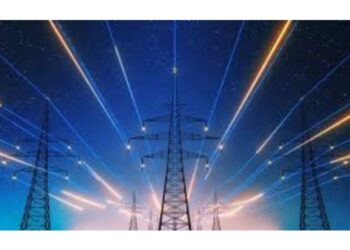As the world attracts itself to a move in renewable energy, the solar energy industry is leading the entire globe in steering itself away from fossil fuels. The art of the supply chain lies in manufacturing solar panels, which are fundamental to this industry as many interdependent components make up the process. Nevertheless, as raw material shortages and logistical hurdles, market volatility, and sustainability concerns engulf these supply chains, they are destined to confront different types of battles in the future. These issues have been addressed by technology and emerged as a transformative force in the solar panel manufacturing process; technology has come up with innovative solutions to increase the efficiency, resilience, and transparency of the process.
The dependency of the polysilicon, silver and rare earth elements data on critical raw materials makes them one of the biggest challenges of the solar panel manufacturing process. The supply chain is also affected by geopolitical tensions, mining restrictions, and environmental regulations, and these materials are limited to a few regions from which they are sourced. The growing use of these materials with the rapid expansion of solar has also created gapping demand vs. supply and price volatility. Today, these materials’ traceability and ethical sourcing have also greatly benefited from technology (mainly including blockchain). Blockchain applies to manufacturers the concept of an immutable digital ledger which records the origin, transportation, and certification of raw materials in the most detailed way. Ensuring compliance with environmental and labour standards, as well as trusting consumers and regulatory bodies, means the transparency offered here.
Further supply chain problems are made more difficult due to logistical complexities. Specially manufactured solar panels are put together at hubs, and they are transported to installation sites the world over. Straightforward coordination of transportation, customs clearance and storage is needed. Any disruption anywhere along this chain, including delays at ports, underdeveloped infrastructure or natural disasters,s can lead to production slowdowns that ultimately cause cost overruns. In addressing these logistical issues, Internet of Things (IoT) technology has been crucial in its adoption. IoT sensors in shipments are smart IoT sensors embedded in shipments that provide real-time data on location, temperature and handling conditions such as shocks and motion, allowing manufacturers to see how their goods are doing and take action on disruptions. A depth of visibility at this level ensures that panels and components arrive at their destinations at the right time and in the right condition.
One of the pressing issues is the varying demand for solar panels, which is affected by government support, the market trend and the world economy. The frequent surges and drops in demand put inefficiencies across the supply chain, e.g. manufacturers having difficulty in aligning production with market needs. Demand forecasting is a game-changing issue that Artificial Intelligence (AI) has solved. AI manufactures by analysing historical data, current market patterns and external influences to give the manufacturers accurate predictions of future demand. It helps them produce at the optimal schedule, reduce excess inventory and underproduce to minimise the waste and to maximise profitability.
Solar panel manufacturing is an overall concern for sustainability. While solar is a green solution in itself, the processes and supply lines involved are much less than green. Maintaining transparency and accountability in the manufacturing lifecycle process is a growing demand from governments and consumers alike. Digital twin technology – creating virtual replicas of physical assets – is a powerful tool for helping to address these concerns. Manufacturers can run supply chain scenarios and evaluate the impact on the environment of their supply chain operations to identify opportunities for improvement. Take, for example, using digital twins to optimise transportation routes, minimise energy consumption in production facilities, or calculate sustainability in the supply of raw materials.
Automation and robotics, too, have helped overcome the challenges that have arisen in the supply chain. In manufacturing plants, solar cell and panel assembly have become automated, decreasing the need for manual labour and decreasing the number of production errors. In addition to warehouse operations, these technologies are also used for inventory control, optimising storage layouts and fulfilling efficient order processing by robotic systems. Apart from efficiency, automation also guarantees production will not be interrupted in case of labour shortages or pandemics.
There is no comparison on how technology plays a role in resolving the supply chain challenges in the manufacture of solar panels. Blockchain and IoT, AI and digital twins are among these innovations to the way manufacturers tackle the intricacies presented by raw materials sourcing, logistics, demand forecasting and sustainability. With the growth of the solar energy industry, resilient, efficient and environmentally responsible supply chains will increasingly adopt advanced technologies. Utilisation of these tools allows manufacturers to keep solar panels flowing at a rate sufficient to meet the world’s goals for renewable energy, which includes greener and more sustainable ways for all.












